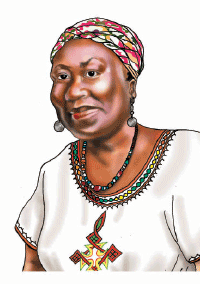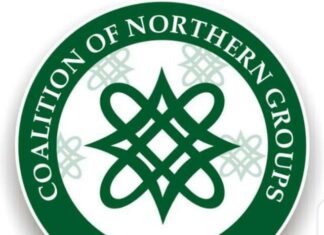That is the direct translation of Amin Maalouf’s celebrated book, Les identities meurtrieres (Grasset, Paris, 1998). From the French original, the official title for the English translation is actually, In the Name of Identity: Violence and the Need to Belong. The cold-blooded murder on the evening of Wednesday, 17th June, 2015 of nine African Americans participating in a bible study session at the historical Emanuel African Methodist Episcopal (A. M. E.) Church in Charleston, South Carolina brings the whole issue of identity up on the front burner again. Twenty-one year old Dylann Roof enters the church, sits for an hour with those taking part in the bible study, then gets up and mows down nine of them with his gun. One is bound to wonder: whatever has conditioned the mind of that young man to make such a brutal and gruesome act possible?
Amin Maalouf may provide some answers – and help us all to caution ourselves. He explores in depth the issue of identity and the apparently human need to belong to a well-defined, though hardly ever homogenous group. According to him, there is a tendency for that group to which one belongs to assume an unhealthy competitive and antagonistic attitude towards other groups, resulting in an “Us” versus “Them” mentality. Before you know it, negative mental dispositions towards the “Other” begins to acquire a more ominous dimension, and eventually gets played out physically in verbal, psychological and bodily attacks. Maalouf is well qualified to understand the dimensions of the problem, given his very mixed family background. Being a French-Lebanese Arab Christian (having a Catholic mother and a protestant father) is not an easy identity to carry in today’s world; you always have something to explain.
There is no doubt that Dylann Roof’s mind is a deranged one. Unfortunately, the world has known far too many of such minds. More specifically, the United States of America has only managed to unite the states into one single country; we are yet to witness the birth of the United Peoples and Races of America. Why is it taking so long for this to happen? One would like to know whether this hatred of the black skin, as was vividly demonstrated by Mr. Roof’s action, was nurtured from home. For example, what kinds of conversations about black people were held around the Roofs’ dinner table? I ask these questions because that is very often where the seeds of “murderous identities” are usually sown – in disparaging remarks from parents about their “different” neighbours; in scornful laughter about some of their peculiar physical traits (the black person’s flat nose and thick lips, as opposed to the narrow, pointed nose and thinner lips of white people); in a studied refusal to understand certain peculiar aspects of their customs, traditions and beliefs.
Although this phenomenon is as old as mankind itself, it is nonetheless extremely frightful. Taking some examples from the Bible (with which I am quite familiar), one can ask: Why did Cain enact for us the first murder? Why was Haman (in the story of Esther) so vehemently opposed to the Jews that he would have no peace until he had planned their complete annihilation? And on an occasion when Paul was arrested in Jerusalem, the Bible actually records the words of his accusers: “Away with such a fellow from the earth, for he is not fit to live!” (Acts 22: 22). Simply because Paul had said something they did not agree with. As for examples from more recent history, need we remind ourselves of the holocaust? And of all the fratricidal wars, for example, the one between the Hutus and Tutsis in Rwanda that saw almost a million people killed? One is bound to ask what it is with human beings that makes us feel threatened by otherness, by people who hold a different opinion; and that prevents our souls from being at rest until that “threat” is gotten rid of.
It is heartening that South Carolinians and the American society as a whole are seizing the opportunity of these gruesome murders to address long-standing racial issues in their society. Governor Nicki Haley of South Carolina has taken a much needed step by initiating the process of removing the confederate flag from flying on the grounds of the Capitol. It has for long been an offensive symbol for the African-Americans in that state, a constant reminder of their long years of subjugation and indignity. President Obama himself is seeking to engage the country in some soul-searching regarding the thorny issues of racism and gun control. One can only hope that some truly meaningful dialogue will take place which will address the issues in a more than perfunctory manner.
Finally, there is need for everyone of us to reflect on this human penchant for developing a murderous identity, particularly because its murderous nature normally does not just pop up overnight; rather, it develops over time, frequently starting from simple irritations against people who are different. That is the reason we need to watch our default dispositions towards people who do not belong to our narrowly defined “group” – Igbos are like this; Hausas are like that; no daughter of mine will ever marry one of “those people”. Our tendency to reduce a person’s identity to just a single aspect of their total personality which is then made to override all others usually leads to horrible conflicts and atrocities. Let us all beware of these murderous tendencies.














